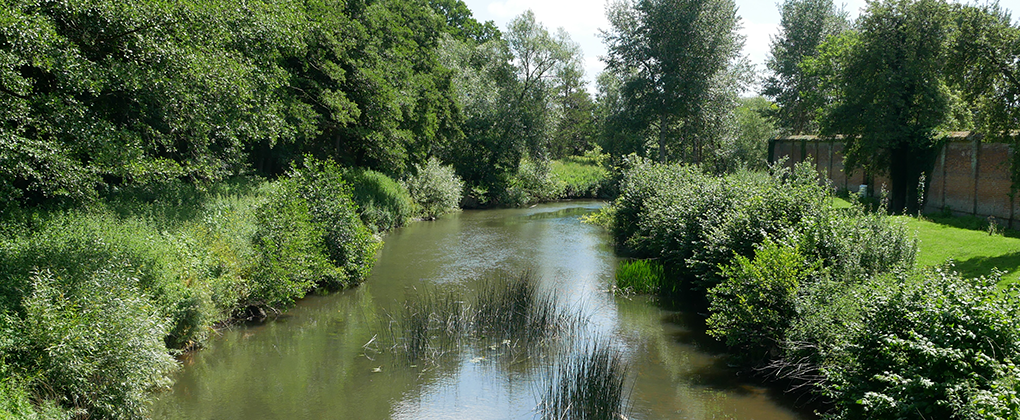
HOW COCA‑COLA IS HELPING TO SUPPORT WATER REPLENISHMENT IN THE UK
30-06-2023
Coca‑Cola is a global leader in water stewardship, involved in initiatives around the world. Here’s how Coca‑Cola is helping to replenish and improve water quality across Great Britain.
As the key ingredient in each and every one of our bottled and canned drinks, water is critical to us here at Coca‑Cola, and water stewardship is naturally at the heart of our business.
We have a vision of achieving water security for Coca‑Cola, communities, and nature by 2030, with water firmly in mind when it comes to the way we operate, source ingredients and be part of people’s lives.
This includes three key areas: Reduce shared water challenges through regenerative water use where we operate, enhance community water access and resilience, and improve watershed health.
Over the past decade, Coca‑Cola has led the way when it comes to water stewardship. In 2015, we became the first Fortune 500 company to replenish all water used in our global beverage products – five years ahead of plan – and we've continued to do so every year since.
We’ve also achieved our goal of replenishing 100% of the water used in the production of our drinks to nature and communities by 2020, and again we achieved this five years ahead of schedule.
We look forward to delivering sustainable solutions that improve water quality and replenish key areas across the UK, but we can’t do this alone, which is why we’re collaborating with key partners including The Rivers Trust and Norfolk Rivers Trust (NRT).
The Rivers Trust
The Rivers Trust and The Coca‑Cola Foundation are working closely together to develop a deeper understanding of freshwater environments across England, aiming to deliver critical improvements to rivers in London and Northumbria as well as an ancient fen in Kent.
We’ve been working with The Rivers Trust since 2012 to clean some of Britain’s most polluted rivers, reduce flood risk, and create new wetland habitats in both rural and urban locations across the country.
In 2020, we launched Replenish to improve water quality, reduce flood risk, store carbon, enhance habitat and biodiversity, and enhance the health and well-being of local communities.
The three-year project aims to replenish 1.6 billion litres of water, capture, or absorb at least 10 tonnes of carbon per year, create at least four major urban wetlands to improve water quality, reduce flood risks, and provide new natural habitats for wildlife and local communities to enjoy.
Other benefits include the creation of 20 smaller settling wetlands to trap agricultural pollutants and the restoration of 66 hectares of ancient coastal Ham Fen peatland in Kent to improve biodiversity through habitat restoration for over 30 bird, animal and rare plant species.
Explore more with our Replenish Project 2022 update
That’s along with planting 9,000 trees and working with local farmers to help lock in carbon, alleviate pollution, and reduce local flood risk, engaging with businesses to encourage better water management in supply chains through the Water Stewardship Service, and a framework to empower local communities by making them part of the local water quality decision-making process.
Norfolk Rivers Trust
Coca‑Cola is also proud to have supported the Norfolk Rivers Trust for the past nine years, helping local farmers and communities to protect one of the most water-stressed areas in the UK.
In February 2022, the Coca‑Cola Foundation and NRT launched the fourth phase of the Water Sensitive Farming (WSF) initiative, with the initiative aiming to reverse the decline of freshwater environments in Norfolk, and parts of Suffolk and Cambridgeshire.
Since launching in 2012 with key support from the WWF-UK and Coca‑Cola Freshwater Partnership, the WSF initiative has replenished 2.75 billion litres of water – the equivalent of approximately 167 Olympic-sized swimming pools.
It has supported over 300 farmers, improving approximately 3,100ha of agricultural land, and boosted the health of Britain’s largest protected wetland, the Broads National Park, along with protecting rare chalk streams including the river Wensum Special Area of Conservation (SAC) and Site of Special Scientific Interest (SSSI).
Explore our Water Sensitive Farming project
The fourth phase will replenish 500 million litres of water, work with farmers to create a minimum of 20 on-farm wetlands, ponds, and silt traps, restore stretches of degraded chalk stream and implement land management changes including agroforestry and the creation of floodplains and meadows.
The project will also see the planting of at least 1500 trees to stabilise banks and connect existing habitat filter water, and the implementation of citizen science monitoring schemes to provide an important source of information and support for understanding and restoring the health of local river catchments.
